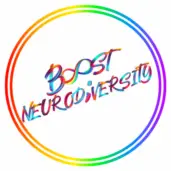Key points:
nnnn- n
- Neurodiversity and neurodivergent are two distinct terms with important distinctions. Neurodiversity refers to valuing and embracing the neurological differences among individuals, recognizing them as inherent elements of human diversity. Neurodivergence, on the other hand, describes individuals whose neurocognitive functioning deviates from the norm. nnnn
- The concept of neurodiversity challenges the traditional view of perceiving neurodivergent individuals as needing therapy or a cure. Instead, it seeks to change society’s perspective and acknowledge the unique capabilities and contributions of neurodivergent individuals. nnnn
- It is essential to respect the preferences and terminology used by neurodivergent individuals to describe their own experiences. Both neurodiversity and neurodivergence are significant notions that should be embraced, and efforts should be made to integrate individuals from all backgrounds in an inclusive manner. When in doubt, it is always appropriate to ask for assistance in using the terms correctly. n
My family and I have been utilizing both the words “Neurodiversity” and “Neurodivergent” in our conversations. However, recently, I have started to contemplate their utilization and how we interpret their meanings. The terms ‘neurodiversity’ and ‘neurodivergent’ have been utilized as if they are one and the same, leading to misunderstanding of their definitions and implications for a great many of people. Even though there are common points between the two terms, there are also a few distinctions between them which are of immense importance for defending neurodiverse societies and forming a cohesive environment. To explain the discrepancies between the two words and accentuate their significance, let us inspect the discrepancies between neurodiversity and neurodivergent.
nnnnNeurodiversity involves an outlook that aspires to value the disparities between people.
nnnnThe proponents of the neurodiversity theory contend that individuals suffering from conditions such as dyslexia, autism, and ADHD, are distinct from others in their neurological formation. Neurodiversity maintains that such variations in neurology and behaviour are inherent elements of human diverseness, and not to be seen as unfavourable or unfortunate. Traditionally, people with neurodivergent conditions were perceived as in need of therapy and cure. Essentially, the objective of neurodiversity is to alter society’s point of view towards neurodivergent individuals. It is also to identify that these people are capable of demonstrating special capabilities and offer precious contributions to society. Despite the fact that acknowledging and showing respect for neurodiversity can be an arduous task, it is absolutely necessary for embracing a heterogeneous world. By approving of neurodivergence, we can make a society in which everyone is capable of thriving.
nnnnIt may appear that the terms “neurodiversity” and “neurodivergence” are interchangeable, but that is not the case.
nnnnNeurodiversity, as mentioned earlier, relates to the belief that neurological dissimilarities are a characteristic part of the human species. It pushes for these distinctions to be recognized and embraced rather than condemned or repudiated. Neurodivergence, in contrast, describes people whose neurocognitive functioning varies from the norm or standard. It is often used by individuals who recognize themselves as neurodivergent as a sign of their own personal identity. Neurodiversity advocates for everyone with neurological differences. Neurodivergence is used to indicate people who are in variance from the usual pattern. Acknowledging and honouring both neurodiversity and neurodivergence is essential for making an atmosphere where everyone feels accepted and included.
nnnnNow the question arises, how to employ these terms with deference and correctness?
nnnnHere are a few tips:
nnnn• Respect the terminology and preferences of neurodivergent individuals when it comes to describing their own experiences.
nnnn• Remember that both neurodiversity and neurodivergence are significant and crucial notions. Make efforts to approve and integrate individuals of all backgrounds.
nnnn• If you are uncertain which term to use in a certain situation, ask for assistance.
nnnnBy appreciating and understanding the dissimilarities between neurodiversity and neurodivergence, we can create a world which is inclusive and encouraging for everybody. Only then can we achieve a harmonious and fair society that gives everyone an opportunity to prosper.
nnnnReferences:
nnnn- n
- “NeuroTribes: The Legacy of Autism and the Future of Neurodiversity” by Steve Silberman – This book offers a comprehensive history of autism and explores the concept of neurodiversity. It sheds light on the experiences of individuals on the autism spectrum and advocates for acceptance and support. nnnn
- “The Power of Neurodiversity: Unleashing the Advantages of Your Differently Wired Brain” by Thomas Armstrong – This book explores the strengths and advantages associated with neurodivergent conditions such as autism, ADHD, dyslexia, and more. It emphasizes the value of embracing neurodiversity in education, the workplace, and society. nnnn
- “Neurodiversity in the Classroom: Strength-Based Strategies to Help Students with Special Needs Succeed in School and Life” by Thomas Armstrong – Focusing on education, this book offers practical strategies for creating inclusive classrooms that celebrate the strengths of neurodivergent students. It provides guidance for supporting diverse learning styles and promoting academic success. nnnn
- “Different . . . Not Less: Inspiring Stories of Achievement and Successful Employment from Adults with Autism, Asperger’s, and ADHD” edited by Temple Grandin – This book features personal stories of individuals with autism, Asperger’s syndrome, and ADHD who have found success in various careers. It highlights the unique talents and perspectives of neurodivergent individuals in the workplace. nnnn
- “The Autism Spectrum: A Guide to Neurodiversity for Professionals and Parents” by Jill Boucher – This book provides an overview of the autism spectrum and explores the concept of neurodiversity. It offers insights for professionals and parents on understanding and supporting individuals on the spectrum. n
These books provide valuable information and perspectives on neurodiversity, neurodivergence, and creating inclusive environments. They may further expand your understanding of these concepts and offer guidance on fostering acceptance and appreciation for diversity in society.
n
